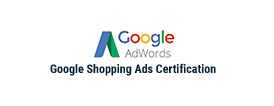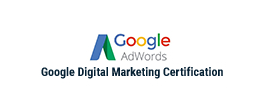Home » Our Services » Search Engine Marketing
Search Engine Marketing
Search Engine Marketing
SEM (search engine marketing) is an Internet marketing technique that involves improving the exposure of websites in search engine results pages, typically through paid advertising.
SEM may include search engine optimization, which involves adjusting or rewriting website content and architecture in order to improve pay-per-click listings by ranking higher in search engine results pages.
What is Pay Per Click Advertisement?
It is where you advertise your business online through ads and pays for each person that sees it. The goal of the advertisement is to drive users to the advertiser’s website or app, where they may complete a valuable activity like making a purchase. Advertisers may place an ad on search engines that are relevant to what users are looking for, making them attractive host platforms.
How Does PPC Advertising Work?
The quantity of the bid and the quality of the ad are two elements that go into deciding who gets the top spot on host platforms. PPC’s gears keep turning by way of these auctions. They start when a person uses a search engine to look for something specific. Advertisers must engage in an auction-based on keywords they bid on if they want to show advertising relevant to a user’s search query. The winning ads appear on the top page of the search engine results.
What Are The Benefits Of PPC Advertising?
You only pay when the advertisement is seen. PPC will not be charged until those impressions turn into link clicks. That’s excellent because it relieves you of one of the most costly conversions.
Targeted – You can narrow down your audience based on area, language, and device. It is possible to track and measure the efficacy of PPC ads. You can figure out how much your return on investment is.
Customizable – you can make a variety of little changes to your campaigns to find what works best.
It is fast – the outcomes of your PPC efforts will be seen almost immediately.
Consider the following factual data if you're still not persuaded that PPC advertising is right for your business
- Google processes almost 40,000 searches every second.
- 63 percent of people believe they will click on Google ads on their own initiative.
- 75% of people who click on advertisements believe it makes it easier for them to find the information they’re looking for.
- PPC, according to Google, can help increase brand awareness by up to 80%.
- For local searches, ads account for 25% of all clicks on search results.
Local businesses that utilize PPC to regionally target their customers reported a 107 percent increase in in-store visits.
OUR SEARCH ENGINE MARKETING (SEM) SERVICES
PPC Call Tracking
Automatic Bid Optimizations
Traffic Quality Improvements
Keyword Match Type Selection
ROI Conversion Tracking
Quality Score Improvements
Display Campaign Targeting
Analytics Improvements
Keyword Refinement/Expansion
Geo-Targeting Improvements
Image Ad Creation
Ad Extension Granularity
Single Keyword Ad Groups
YouTube Campaign Refinement
Creative Ad Copywriting
We use paid advertising to help brands of all sizes grow quicker, think larger, and convert better.
Our experts offer a full range of PPC services to assist you in achieving your objectives quickly and cost-effectively.
You can rest assured that your PPC account is in good hands when you work with us. Our PPC consultants and paid search marketing experts have teamed up to provide you with a hands-on Google account to help you reach your objectives.
Our team not only creates fantastic PPC software that makes pay-per-click marketing easier and more successful, but we also live what we preach by researching best practices and delivering the best PPC results for you every day.
Testimonials






Frequently Asked Questions
It is a digital marketing approach that is frequently used to improve a website's exposure and boost the number of visits. Marketers choose and bid on "keywords" that are more likely to lead people to a specific landing page.
SEM is an important component of any marketing plan since it reaches clients who are actively looking for a product or service. SEM adverts display at the top or side of the page if a specific term is utilized. Marketers are only compensated if the user clicks on the advertisement. Setting up an SEM campaign is relatively simple.
You'll need to undertake search engine optimization to get organic, free clicks. Search engine optimization is all about tweaking your content to please search engine algorithms.
Several factors influence a website's organic ranking, including:
- Keyword density and keywords
- Link-building
- The standard of the content
- Optimization of a website
- Optimization for mobile devices
- Social media interaction with your website
- Formatting in HTML
Step 1: Defining an Effective Strategy. Define who you want to reach.
Step 2: Select the Appropriate Keywords. Choose the most crucial phrases that are relevant to your business, as well as the phrases that your target clients commonly search for.
Step 3: Optimize Your Website Content Pay attention to the structure of your website. Maintain a straightforward approach.
Step 4: Submit Your Website to the Search Engines for Indexing. Customers should be able to find you online.
Step 5: Increase the number of high-quality links to your website. Build links to your website from high-quality links on other websites that your target audience frequents.
Step 6: Manage Paid Search Ads Place bids on the most relevant terms. Do not choose them just based on their popularity.
SEO
It is a method of optimizing your website or blog in which the website owner takes particular measures to optimize their site, which helps search engines rank the site higher. You may use SEO to get a leg up on your competitors.
SEM
SEM is a broader phrase than SEO, and it's used to encompass a variety of possibilities. This traffic generation method can be either free (SEO) or paid (PPC) (PPC).
The goal of SEM is to increase your brand's visibility. The biggest benefit of employing SEM is that it is a terrific source of focused traffic.
Search Engine Marketing is important to businesses in the following ways;
- It helps you reach your clients instantly
- It increases brand awareness since a large variety of people online can discover your brand.
- It helps create Geo-Targeted search ads
- It helps implement and manage ads easily and quickly
- It helps target the right audience through optimized ads
- It helps target audiences through keyword matches hence they can easily find what they are looking for on your website
- You pay only per action i.e. through pay per click for ads.
- It helps you appears on competitors' related keywords
Yes, it is effective especially for small businesses since they can use SEM to reach their target audience, acquire new customers, boost sales, and reduce acquisition expenses.
To achieve meaningful results in search engine marketing does not happen overnight, it takes months to years of persistent effort and dedication. Numerous additional internet advertising methods can also be used.
To enhance effectiveness, it's vital to develop a social engine marketing strategy and action plan that is tailored to your company's specific goals, resources, and time constraints.
Yes, it is. The term "search engine marketing" refers to anything that uses a search engine to get people to your website. Both free and sponsored traffic is included.
Free traffic is generated by enhancing your site's search engine optimization, however, paid traffic (search engine advertising) can be utilized to swiftly bring large amounts of focused visitors to your site.
Pay-per-click (PPC) advertising, such as the links on the right-hand side of the Google search results page, is the most frequent type of search engine advertising.
SEM refers to any type of advertising that is carried out on various search engines. Two major search engines are widely used all over the world: Google and Bing. Advertisers place search advertisements, receive clicks, and direct consumers to specific landing pages.
With PPC, you pay a set fee each time a user clicks on your paid search ad, display ad, native ad, affiliate ad, or paid link.
The primary distinction between SEM and PPC is that the former is limited to search engine advertising, whilst the latter can include search, display, and affiliate advertising. The standard practice is that you will only be charged if someone clicks on your ad.
Investing in sponsored marketing ensures that the right information about your small business appears at the right time and in the right place.
SEM yields quick results by focusing on an audience that is already interested in the product, information, or service that your company provides. It gives small firms a competitive advantage over their larger corporate competitors while also providing a significant return on investment.
SEM costs may be easily adjusted to match any budget or time frame, making it a flexible and economical strategy that can be implemented by small businesses.
SEM is a marketing strategy that entails managing a brand's or website's overall presence in search engines in a broad meaning; in a more specific sense, it's a marketing approach that entails managing a brand's or website's total presence in search engines in a more precise sense.
Organic optimization techniques are commonly employed in SEO to improve a site's performance by utilizing search engine ranking algorithms. When a website is correctly set up and optimized, it will naturally attract traffic from search engine results.








